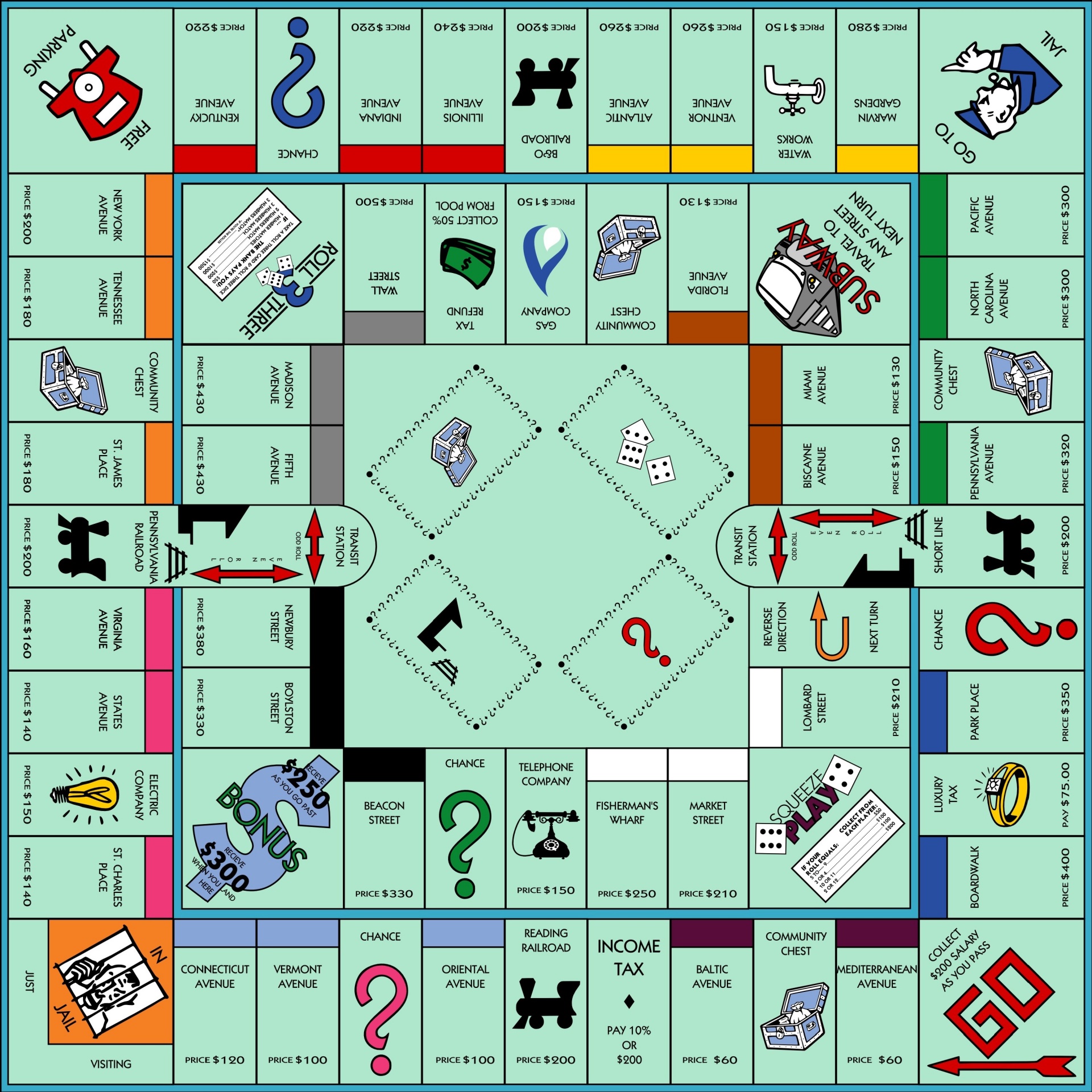All Categories
Featured
Table of Contents
TLDR Summary:
- 🎲 Monopoly started as a socio-economic lesson in land ownership and inequality.
- 🌍 The evolution of themes reflects societal changes and cultural contexts.
- 🕰️ Nostalgia keeps the game relevant, with collectors seeking unique editions.
- 🤝 Future Monopoly trends highlight diversification and community engagement.
The historical context of novelty Monopoly games has been shaped by its intriguing evolution over more than a century. The journey began in the early 1900s when Elizabeth Magie created The Landlord's Game, a board game designed to illustrate the pitfalls of capitalism and land monopolization. Initially intended as a form of social commentary, Magie's invention laid the foundational ethos that would permeate through various iterations of Monopoly, demonstrating how board games can reflect and even influence societal beliefs and attitudes.
Charles Darrow's popularization of the game in 1935, rebranded simply as Monopoly, marked a significant turning point. His version introduced the now-iconic Atlantic City theme, which swiftly captivated the public. With post-World War II America fostering an economic upsurge and a culture of consumerism, Monopoly quickly became a household staple, transcending its modest beginnings as a tool for economic education. The game diversified into themed editions such as Harry Potter and Star Wars, aligning with popular culture trends while also keeping the educational element intact. Each new theme or edition offers a fresh narrative that resonates with contemporary audiences, serving as both a form of entertainment and a marketing strategy.
The cultural impact of Monopoly is notably profound. Over decades, it has evolved into more than just a game; it serves as a societal mirror. Various editions of Monopoly can encapsulate the zeitgeist of particular eras. A notable example of this was during the Second World War, when a special version was created to assist prisoners of war. Hidden inside these unique game sets were actual maps and tools, bridging the gap between play and real-world application. Thus, Monopoly exists not solely as a source of entertainment but as a versatile vehicle for cultural reflection.
Understanding Monopoly's Societal Reflections
The nostalgic allure of Monopoly plays a critical role in its survival and adaptability. For many players, engaging in a game of Monopoly invokes cherished memories of family gatherings and friendships. The nostalgic aspect creates a deeply personal engagement, making it more than just a pastime; it becomes a way to connect with loved ones and treasured childhood experiences. The continuous release of themed editions further enhances this sense of nostalgia. Collectors often find joy in hunting for rare editions that feature unique artwork or gameplay mechanics, like the Nostalgia Edition, which invokes memories through its classic design.
Moreover, the versioning of Monopoly has entrenched itself within the fabric of family traditions, reinforcing the game’s significance as a communal activity. Unique editions targeted at various demographics emphasize contemporary themes while keeping traditional gameplay intact. This balance of old and new allows the game to remain enticing across generations, fostering a connection that many players find exhilarating.
Anticipating Future Trends in the Monopoly Community
Looking towards the future, the trends surrounding Monopoly games seem steadfast in their promise of continued diversification. As custom and limited-edition versions gain momentum, Monopoly remains poised to cater to an ever-evolving audience. The increasing integration of community engagement elements, facilitated by platforms like social media, has bred a participatory culture where fans influence new edition designs. Platforms such as Reddit's board game community drive enthusiasm, allowing enthusiasts to contribute their ideas and preferences, creating a feedback loop that excites both developers and players alike. This user-driven dynamic might open a new chapter in Monopoly’s legacy, one where players contribute actively to its evolution.
As more individuals engage with the game in non-traditional ways—like through home-grown editions or community events—the fabric of Monopoly will further embody a sense of shared experience. The move towards custom-play being integrated into family and friend gatherings indicates a shift away from a purely marketing-driven product towards a more personalized and intimate gaming experience.
Collecting Monopoly: A Guide to Unique Editions
For avid collectors, diving into the world of unique Monopoly editions is akin to embarking on an exciting treasure hunt. The diverse range of editions available, from pop culture phenomena to historical significance, provides ample opportunities for collectors to expand their collections. Rarities such as the Family Edition Monopoly, featuring custom playoptions, are sought after for their nostalgic and innovative features, making every find a unique achievement. These limited-edition sets not only evoke memories but can also serve as investments, often appreciating in value depending on their rarity and condition.
Monopoly themes such as local culture or historic events provide even richer narratives. For instance, editions created during the Nazi occupation of the Netherlands are collector items that encapsulate a moment in history, offering context beyond mere gameplay. These editions allow players to explore their heritage and gain richer insights into their local culture through the lens of a game known worldwide.
Engaging with online platforms or attending conventions can enhance the search for rare items. Collectors frequently share tips, engage in trading, and showcase their prized possessions, fostering a sense of community while unraveling the game’s overarching stories and meanings.
Key Takeaways:
- 🎲 The game began as a social commentary on land ownership.
- 🌍 The evolution of Monopoly reflects changes in culture and society.
- 🕰️ Nostalgia fuels engagement, making it a family favorite.
- 🤝 Future trends focus on community involvement and customized content.
Web links provide additional insights, catering to enthusiasts looking to explore further: Why Monopoly Monopolises Popular Culture, A Secret History Of Monopoly, and The Rise of Board Games in Today's Tech-Dominated Culture. By continuing this tradition of storytelling through gameplay, Monopoly is sure to keep attracting players both new and seasoned for generations to come.

Get complete overview now
Latest Posts
Grid The App That's Changing NYC's Dating Scene
The Road Less Traveled: NYC's Hidden Neighborhoods
Mastering the Art of Apple Picking: A Comprehensive Guide